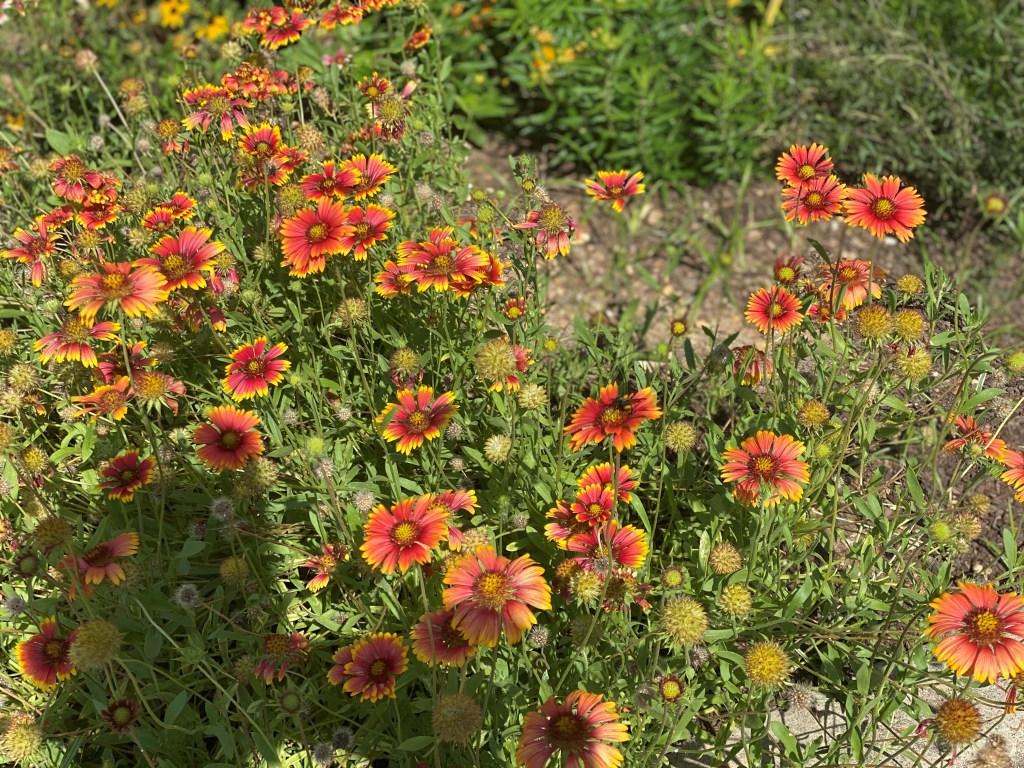Monarch mayday: Send in the natives
Published 1:45 pm Monday, August 29, 2022

- Gaillardia is a native plant that provides nectar for migrating monarchs. Photo by Heather Kirk-Ballard/LSU AgCenter
The monarch butterfly has been listed as an endangered species by the International Union for Conservation of Nature on its Red List of Threatened Species. Habitat loss from devastating weather patterns and the use of pesticides have been cited as reasons leading to a severe decline in both the monarch and its host plant, milkweed.
Each year, the monarch population migrates from Canada and northern U.S. to Southern California and Mexico, where they overwinter. According to the Xerces Society, there has been a steep decline of 70% to upward of 95% of the migrating populations.
Monarchs need a few things to help them along their journey. First, the caterpillars need milkweed to feed on. Milkweed (Asclepias spp.) is the exclusive host plant of the monarch butterfly and is essential to the monarch life cycle. Second, the adult butterflies need nectar plants for energy to both breed and migrate. Third, monarchs need an overwintering habitat.
How can you help? Simple changes in the way we all garden can make a large impact for monarch health. One thing is to stop or greatly reduce the use of pesticides in your landscape — especially systemic products and insecticides containing neonicotinoids.
Next, the monarchs need milkweed. Milkweed is an herbaceous, perennial, flowering plant native to North America. It received this name because it exudes a milky substance called latex when their stems are broken. Plants are upright, and flowers occur on tall stems in round clusters that bloom in May through late summer. Milkweed also produces large seedpods 3 to 5 inches long after flowering.
The loss of native milkweed habitats has played a role in the decline of the monarch. Another thing gardeners can do to help increase monarch butterfly populations is to plant native milkweeds. Milkweeds belong to the genus Asclepias, which consists of hundreds of species. In Louisiana, there are a number of native milkweeds for our climate.
The most commonly available in Louisiana are aquatic milkweed (Asclepias perennis), butterflyweed (A. tuberosa), common milkweed (A. syriaca), fewflower milkweed (A. lanceolate), swamp milkweed (A. incarnata) and whorled milkweed (A. verticillata). Several of these species can be found at local retail garden centers. In addition, milkweed seed can be purchased on the internet.
You also can save your own seeds from plants. Seedpods set after flowering is complete. Pick the pods as they turn brown and dry. Leave the pods on the plant until they have begun to dry and crack but before they fluff. It is difficult to collect seeds once the fluff, known as floss or silk, has emerged. Let those naturally scatter in the wind.
Perhaps one of the most significant things gardeners can do is to plant a diversity of nectar sources for the butterflies in addition to the milkweed host plants. Adult monarch butterflies rely on a diverse selection of nectar sources from spring through the summer breeding time and into the fall migration. A few suggested plants are beebalm, goldenrods, Joe Pye weed, blazing star, blue mistflower, black-eyed Susan and mountain mint. A complete list can be found on the Xerxes Society website at https://bit.ly/3CipJO6.
Finally, expand your landscapes to include plants that support pollinators from spring through fall. By growing wildflowers, shrubs and trees with overlapping bloom times, you can provide a source of nectar for monarchs. This is perhaps one of the most effective things you can do to help support monarchs and other important pollinators.
###
Cutlines:
Providing a diverse selection of native plants is perhaps one of the most important things you can do to help increase monarch populations. Photo by Heather Kirk-Ballard/LSU AgCenter
Gaillardia is a native plant that provides nectar for migrating monarchs. Photo by Heather Kirk-Ballard/LSU AgCenter
Butterflyweed is a type of milkweed native to Louisiana and very important to the monarch butterfly as a host plant. Photo by Heather Kirk-Ballard/LSU AgCenter
Swamp milkweed (A. incarnata) is an excellent native milkweed for monarch butterflies. Photo by Heather Kirk-Ballard/LSU AgCenter





